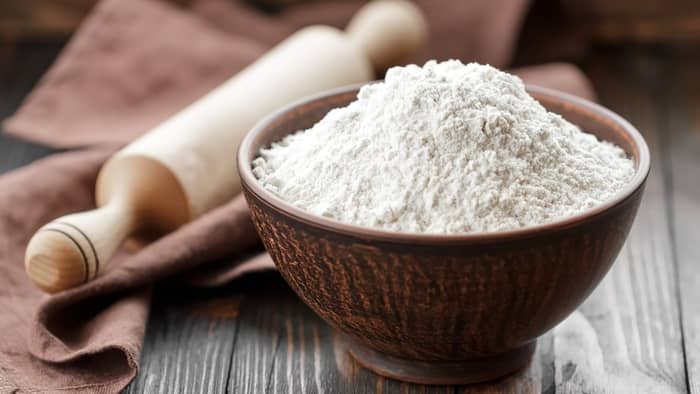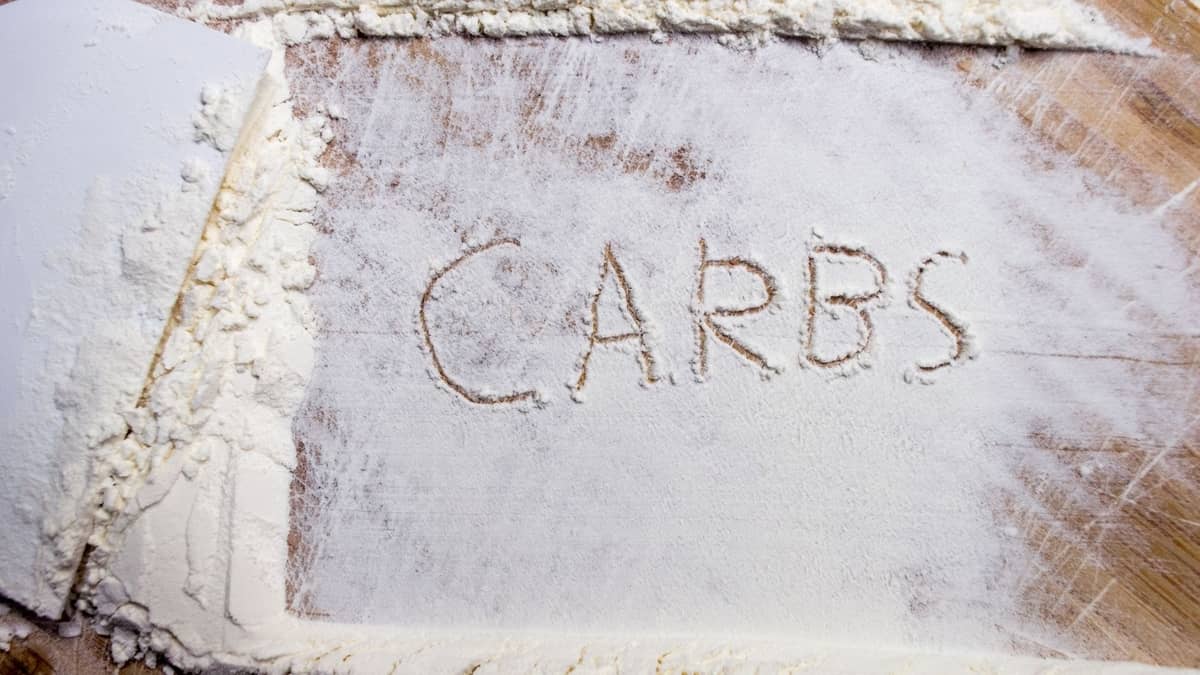Last Updated on October 17, 2024
Flour is one of the most common ingredients used in foods. However, if you are counting carbs, you will want to know the number of carbs in flour. There are many different types of flours, with the number of carbs varying by type.
Whether you are on a keto diet or want to know for health purposes, it is important to know how many carbs are in food. Many people choose to watch their carbs for various reasons. There are some great alternatives to traditional flour that have fewer carbs.
Table of Contents
What Are Carbs?
Carbohydrates or carbs are a type of macronutrient that can be found in some types of foods and drinks. Sugars, starches, and fiber are all considered to be carbs.
Your digestive system works to break down carbs and turn them into glucose or blood sugar. Your bloodstream then absorbs the glucose and uses it to fuel your body.
How many carbs you consume affects your blood sugar. Consuming a large number of carbs can raise your blood sugar levels. Those who don’t consume enough carbs may experience low blood sugar.
Some people choose to cut carbs from their diet in order to lose weight. Keto is a popular low-carb diet that many people participate in to lose weight or help with certain health problems.
Counting Carbs In Flour
Flour is an ingredient used in many foods including bread, tortillas, cookies, cake, pasta, and much more. There are several different types of flour, many of which tend to be high in carbs.

All-purpose white flour
All-purpose flour is the most common type of flour used. It tends to have a longer shelf life than other flours due to the fact that it contains the seed’s endosperm.
All-purpose flour is commonly used for pizza, cookies, brownies, pasta, waffles, pancakes, and biscuits. One cup of all-purpose flour has a total of 95 grams of carbs.
Whole wheat flour
Whole wheat flour is another common type of flour. It is a denser flour as it contains endosperm, germ, and fiber-rich bran.
Whole wheat flour is commonly used for pizza, pasta, bread, and scones. One cup of whole wheat flour has 86 grams of carbs.
Self-rising flour
Self-rising flour contains baking powder and salt in it. It can be used as a shortcut in baking in some recipes and has less protein than most other types of flour.
Self-rising flour is generally used for cookies, cakes, and biscuits. One cup of self-rising flour has 93 grams of carbs.
Cake flour
Cake flour is specially made to create a light, spongy texture in cakes. It is milled to be extremely fine and has a lower protein level than other flours. One cup of cake flour contains 95 grams of carbs.
Bread flour
Bread flour is high in protein, which makes it great for developing strong gluten, which results in a great chewy texture. It is great for artisan bread, cinnamon rolls, and other yeast bread. One cup of bread flour has 95 grams of carbs.
Low-Carb Flour Options
Most traditional flour, like all-purpose, whole wheat, bread, cake, and self-rising flour, are relatively high in carbs. Fortunately, there are some lower-carb alternatives that you can use as flour in your favorite recipes. These are great alternatives if you are on a keto diet.
Almond flour
Almond flour is a great alternative to traditional flour and you can even make your own at home. It also comes with many health benefits including antioxidants, vitamin E, and essential minerals.
Almond flour can be used in place of all-purpose flour in most recipes and is commonly used in macarons. One cup of almond flour contains 22 grams of carbs.
Chickpea flour
Chickpea flour or gram flour is a staple in Indian cuisine. It is full of healthy nutrients such as protein and fiber and you can even make it at home.
Chickpea flour is great for sauces, soups, stews, flatbreads, pancakes, and waffles. One cup of chickpea flour contains 53 grams of carbs.
Coconut flour
Coconut flour is a great alternative to traditional wheat and grain flour. It is high in fiber, protein, potassium, and iron.
Coconut flour is great for bread, cake, waffles, muffins, and crepes. One cup of coconut flour has 64 grams of carbs.
Flaxseed meal
Flaxseed meal is high in protein, potassium, and iron. It has a mild nutty flavor and can work as a substitute for flour in many recipes.
Flaxseed meal is great for baking pancakes, cookies, and muffins, as well as using in cereal, granola, and smoothies. One cup of flaxseed meal has 49 grams of carbs.
Keeping Track Of Carbs In Flour
Flour is a common ingredient in many different foods including bread, pasta, tortillas, and desserts. Most traditional flours are higher in carbs than other foods. However, there are other flours such as almond, coconut, chickpea, and flaxseed meals that are lower in carbs, making them keto-friendly.
Some people count carbs as a way to lose weight or keep their blood sugar levels in check. Knowing how many carbs are in different types of flour can help you keep track of your carb intake and decide what the best option is for you. By using a lower-carb alternative, you can still enjoy many of your favorite foods without having to worry about how many carbs you are eating.
Do you have any questions regarding carbs in flour? If so, please ask any questions regarding how many carbs are in flour in the comment section below.
FAQs
[rank_math_rich_snippet id=”s-ac112279-ddf0-4228-a1a1-5cf94fb5a3c8″]

Anna is a passionate environmental activist and sustainability advocate. She is committed to living a green and sustainable lifestyle and is constantly working toward making her community and the world a better place. Anna is an expert in sustainable living practices, from composting to gardening to energy conservation. She is always researching the best ways to reduce her carbon footprint and is an advocate for green and renewable energy. Anna‘s goal is to spread awareness of sustainable practices and make them accessible to everyone. She loves sharing her knowledge and inspiring others to live a more eco–friendly lifestyle.


